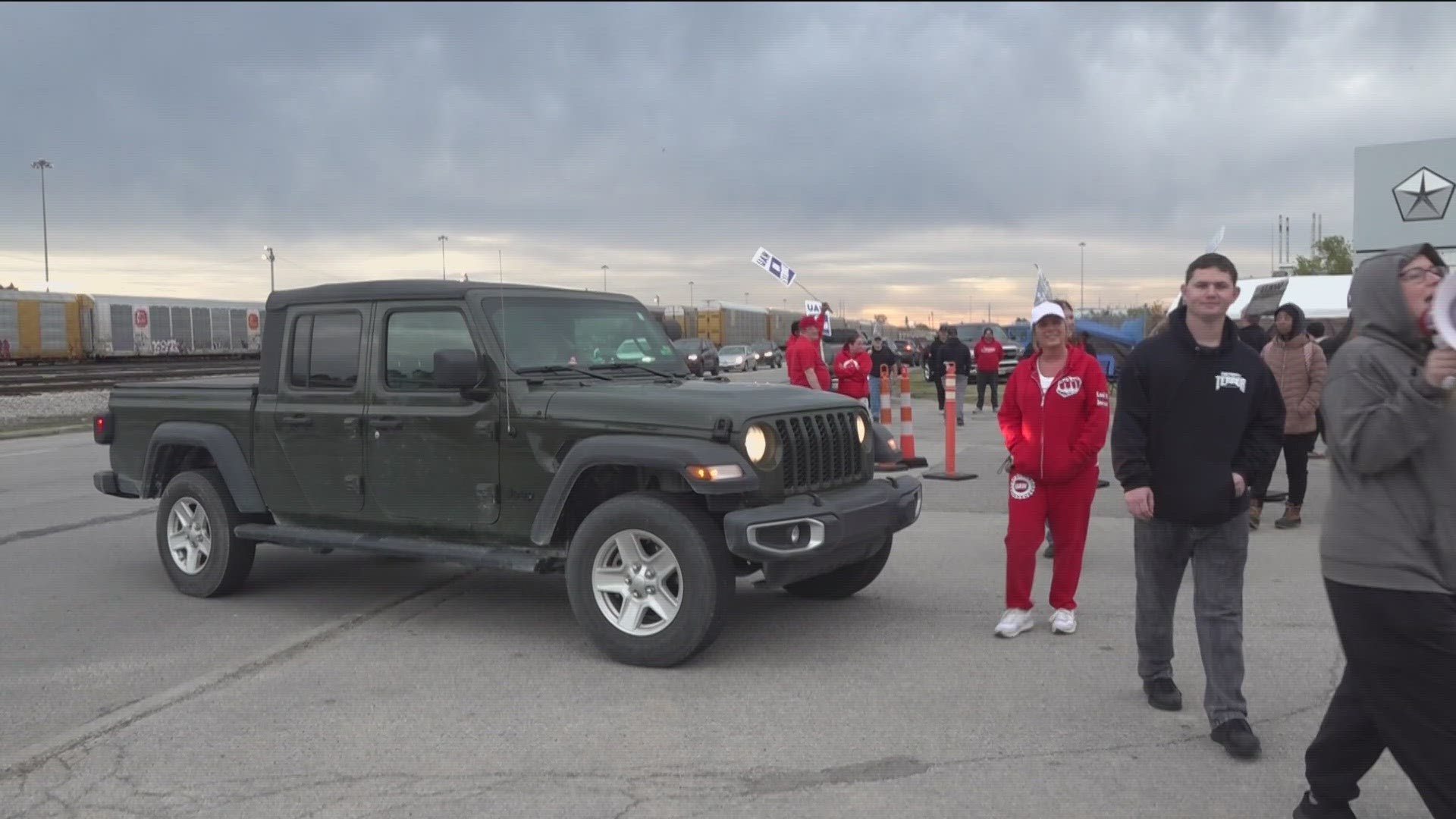TOLEDO, Ohio — Non-union workers crossed the picket line at Jeep's Toledo Assembly Complex early Wednesday morning, receiving a strong reaction from striking United Auto Workers members in what is now being described as a misunderstanding.
Striking union workers outside the plant raised alarms about what they believed to be replacement workers, also known as scabs, who seemed to be on their way into the plant to begin producing Jeeps during the strike, UAW representatives told WTOL 11.
But Stellantis officials said early Wednesday afternoon the workers who went into the plant were not there to replace striking Jeep workers.
"Stellantis is not hiring replacement workers at the Toledo Assembly Complex," according to company media relations officials. "A third party has been hired to assist with other needs at the complex not related to production during the UAW strike."
Stellantis officials added that it would take more than a few hundred workers to get the plant back online.
Buses and cars carrying the workers arrived at the plant around 6 a.m., according to UAW Local 12 Jeep Chairman Mike Sawaya. Some turned away rather than cross the picket line, while others were allowed into the plant.
Sawaya said that Toledo Mayor Wade Kapszukiewicz and Toledo Police Chief Mike Troendle also told union officials that the workers seen entering the plant Wednesday morning were not replacement workers.
The misunderstanding came from a scheduling change, according to Sawaya.
Toledo's Jeep workers were among the first UAW members to strike when contracts between the union and Detroit's Big 3 automakers expired Sept. 15. Since then, more and more workers from unionized Stellantis, General Motors and Ford plants have joined them on the picket lines. Nearly a quarter of the union's nationwide membership now are on strike as negotiations continue.
The United Auto Workers are seeking pay raises, an end to two-tiered pay systems, restored retirement benefits, cost-of-living increases and assurances that workers at new electric battery plants will be unionized, among other demands. The automakers have said they cannot afford the union's demands, particularly as they seek to compete with non-union foreign automakers as the industry shifts from combustion engines to electric model vehicles.
More on WTOL:

